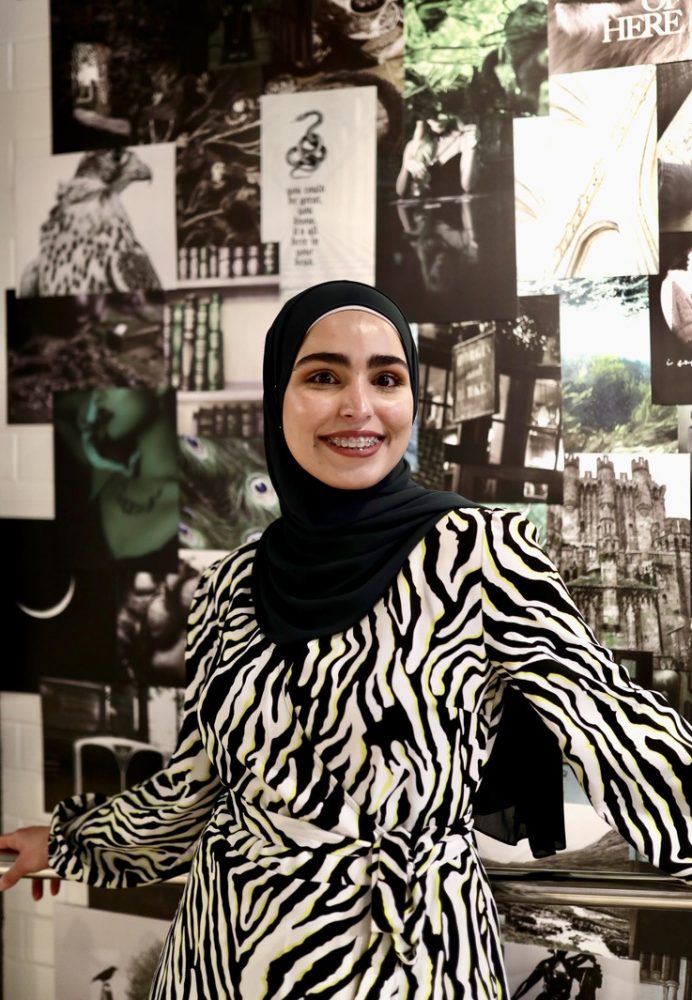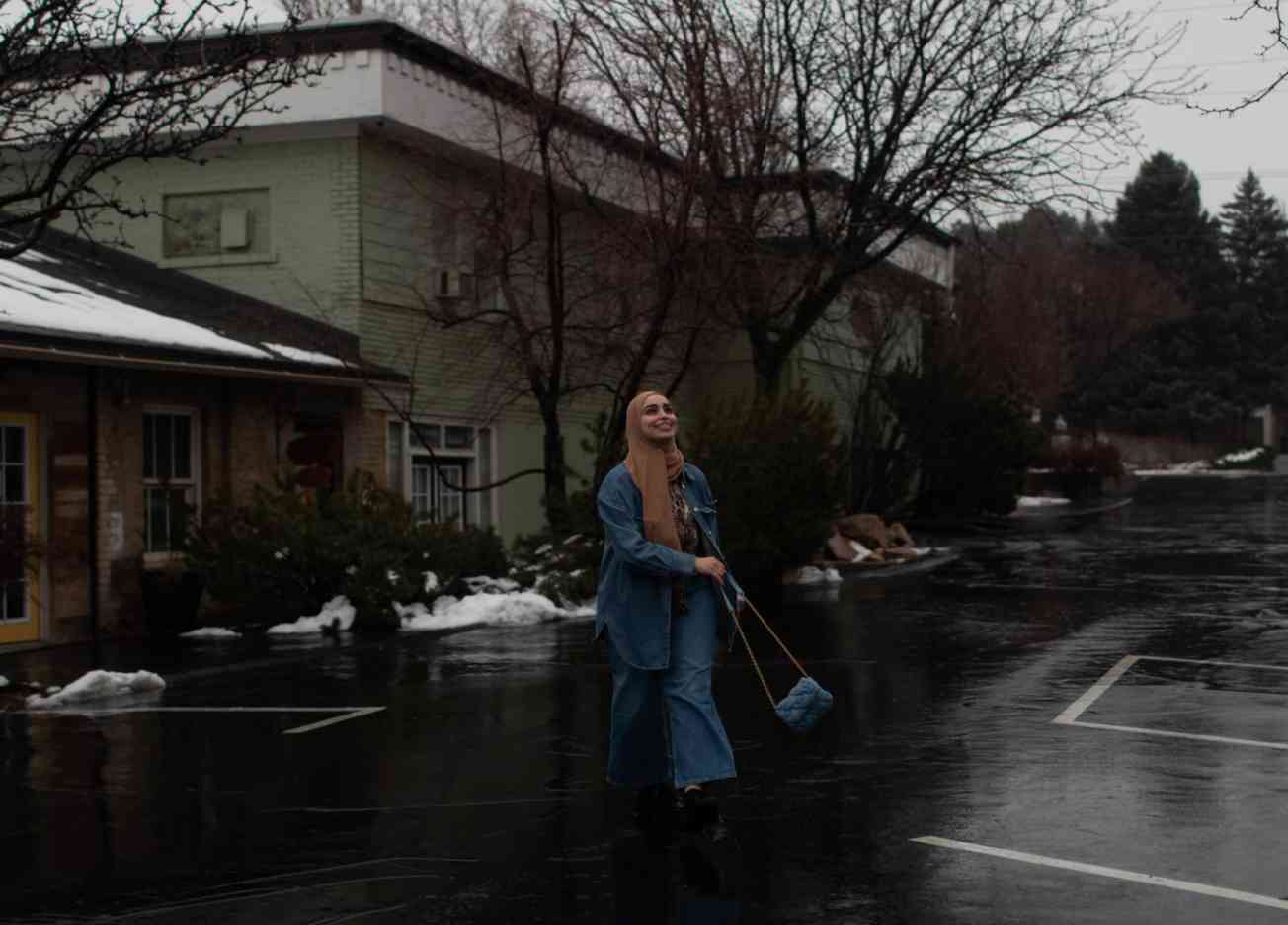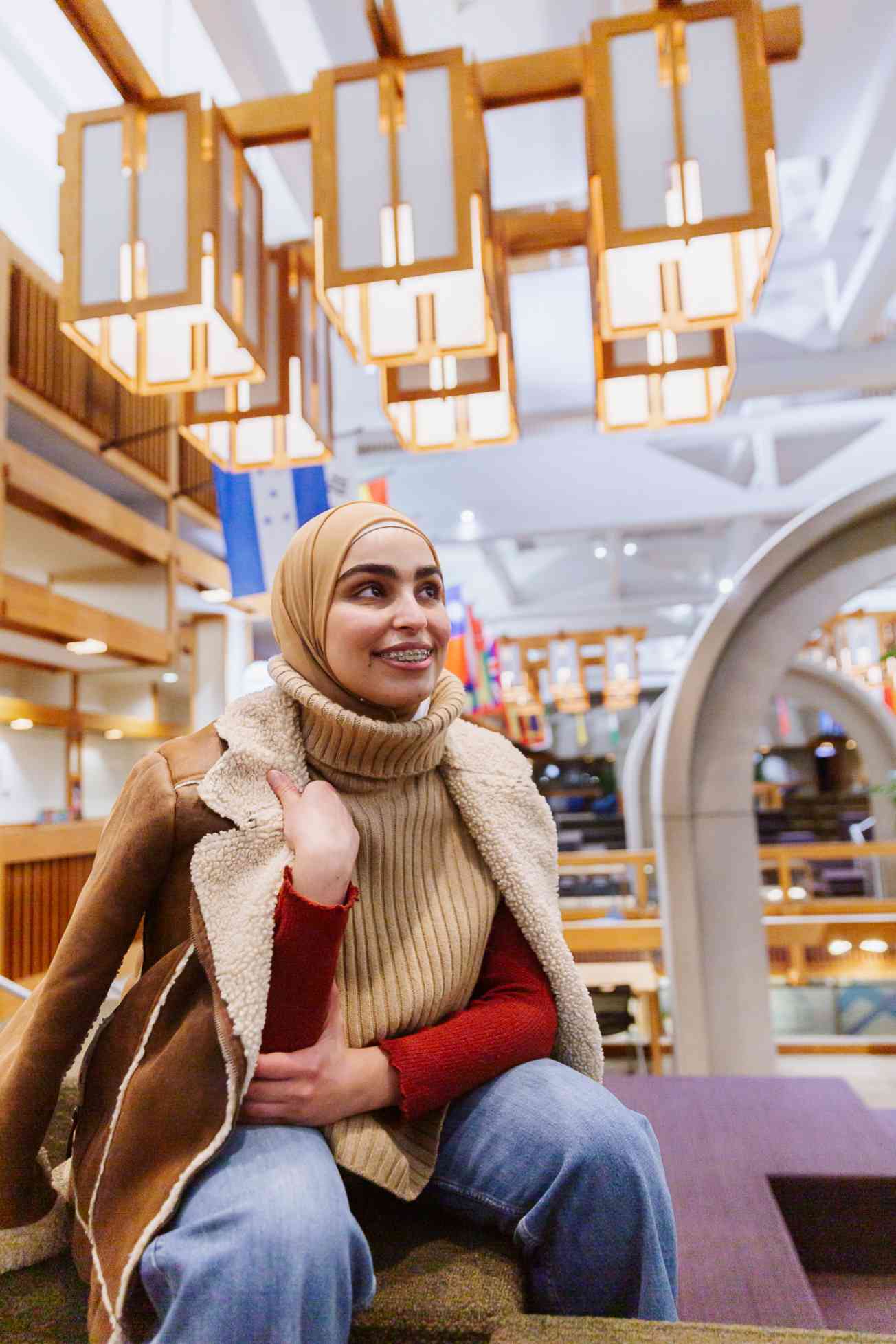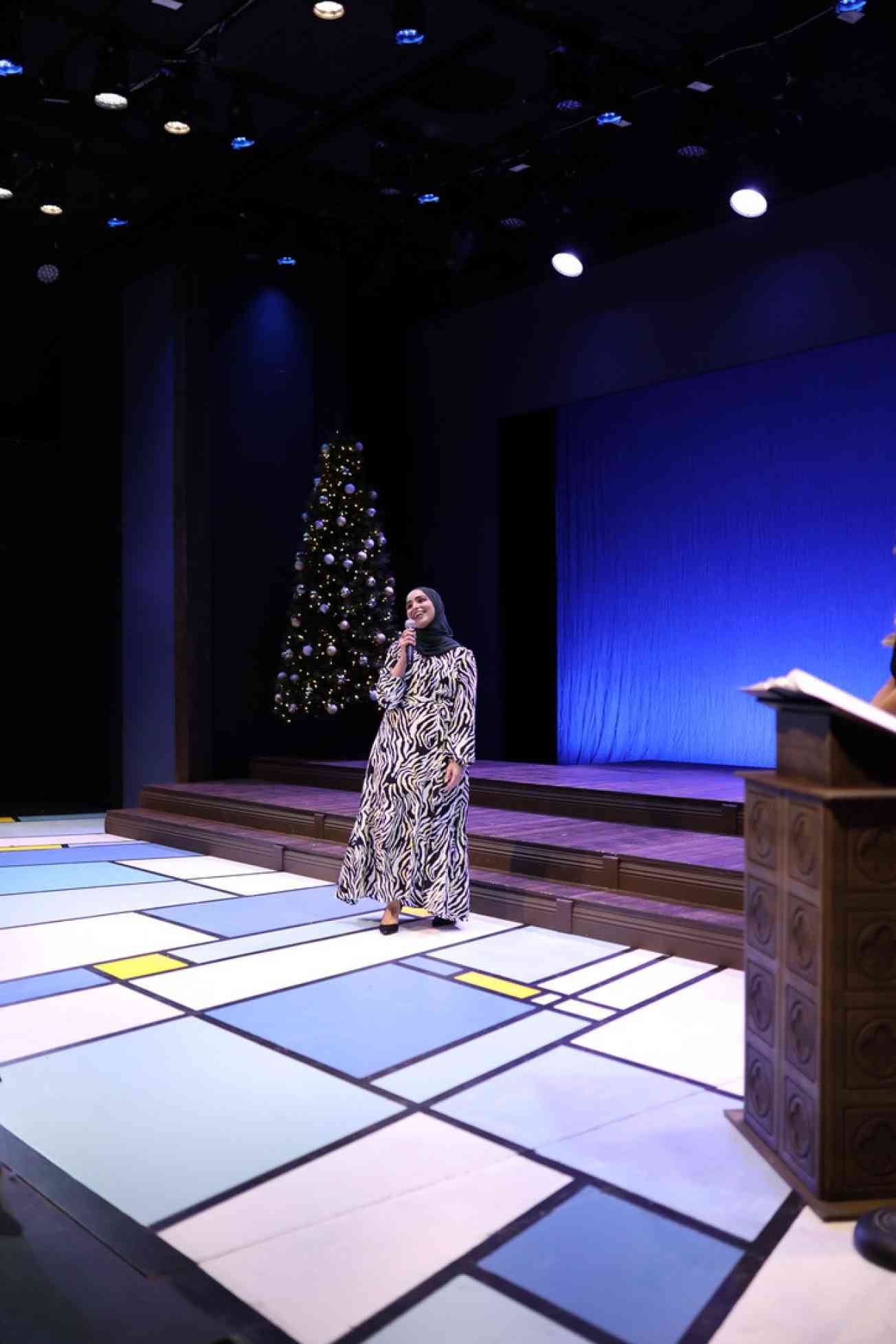Being a Refugee Does Not Make Me Less
My aspirations are to become a surgeon, buy my parents their own house, and sell my art.

I would like to keep raising awareness about refugees, specifically their mental health.
I’m Shurooq Safaa Al Jewari. I’m a refugee from Iraq and now a U.S. citizen. I am also the Community Program Coordinator at TSOS in Utah. When I arrived to the U.S., I wasn’t educated about the importance of mental health. Over my years in the U.S. I developed all these unresolved feelings and I didn’t know what they were. Then, in 2020, when everyone was quarantined inside, I downloaded TikTok.
There was this specific TikTok content creator, Zachary Dereniowski, who used his platform and education to advocate and educate about mental health. He would make videos about mental health describing what anxiety feels like, what having depression is like, and explaining why people might feel depressed or anxious. He talked about PTSD and trust issues. He was very helpful, because when those issues began for me, I was very young, only 13. Watching his videos helped me understand why I was feeling those feelings and how to treat them. I started going to therapy and I’m still going to therapy. It’s gotten better.
I was 12 when I came to Salt Lake City from Iraq. In Iraq, I loved visiting my grandparents’ house on Fridays. We lived in a huge house with my [paternal] grandparents, cousins, aunts, and uncles. And every Friday, we would go and visit our other grandparents’ house. It was amazing because we would be with our other cousins, aunts, and uncles. They would do renovations every week to their house. So every time we’d go visit, they would make us go around the house and guess what they changed. It was very fun.
I also loved Ramadan. Ramadan there is amazing. It’s a whole new world. The whole country is doing the same thing so you don’t feel alone at all and the food is amazing. After we were done fasting and we would hang out in the streets all night. All the neighbors would come hang out, play games, and then watch TV shows.

When I think of Iraq I also think of my older brother. I just loved to bug him. He was a photographer and he would take his camera everywhere. But I would find the camera and maybe delete a couple photos, maybe take a couple. That really bothered him a lot but I found it funny. He passed away from leukemia about a year and a half before we came to America. What he needed wasn’t available in Iraq. That’s why we wanted to come to the U.S. But, when my dad realized it was going to take a very, very long time to get here, he took him to Syria.
My dad spent a couple months in Syria taking care of my brother, and then my brother passed away. My dad brought him all the way back from Syria to Iraq. The rest of us didn’t know my brother had died, until my dad got home with his coffin. The night before my dad showed up at our house. I called him, trying to talk to my brother, but my dad said, “He’s sleeping, he can’t wake up.”
When we first applied for this special visa, it was because of my brother’s illness. But we also started to receive threats. After my brother passed away, my dad kind of gave up. But then he got a call. They said they had been trying to contact him for a very long time, and our visa was ready. We could get out. Everyone but my mom.
They had only granted visas to my dad, my siblings, and myself, so my mom would have to stay. She was worried about us going there on our own and that she would never get to see us again. My dad said they were testing how willing we were to go and live in the U.S. He worried that if we stayed and traveled together none of us would ever get to leave.
It was about a month/a month and a half before my mother came, but it felt like a year. My older sister was in her early 20s and had to cook and clean and take care of the rest of us. My youngest brother was about 3. It was very hard on my sister. Back at home, we used to live with my other cousins and then my aunts and uncles, and here we’re living alone. There is no one else.
In Salt Lake, the community wasn’t welcoming at all. In my country when we moved, a neighbor brought us food because we were very tired from moving. Here, there’s no such thing as this. And it’s not about food. It’s just about knocking on the door and saying, “Hey, my name is ____. I’m your neighbor. We’re very glad that you’re here.” The community’s not as lovely here as back there.
When I got here, I went straight to middle school and I didn’t speak English at all. My only way to make friends was to talk to the kids who spoke Arabic. But, they bullied me, which is a shame. I got bullied by kids from my own culture. That was ten times harder on me than if it had been Americans. I would tell my parents but my parents wouldn’t believe me because they didn’t know what bullying was. We never experienced it back in my country so they didn’t understand.
My teachers never reached out or reported anything. I also told the principal many times. However, my English wasn’t very good. So I couldn’t get the point across. But it was clearly an issue. I would go to their office, literally every week, for three years, but they didn’t do anything about it.
It got to the point where I was choked in the locker room by one of the girls and they ripped my jacket during lunch. It gave me lots of trust issues when it comes to my parents, because they weren’t there for me. I have lots of negative self image about myself and my body because during this time, they would shame me about my body. They would say negative things about me and my body in front of everyone. I struggled with my body image for many, many years and still struggle some. But, I somehow understood that it’s the culture. They didn’t know what bullying or mental health was. And so I can’t blame them for all my issues. I have anxiety, depression, and PTSD. Fridays were my worst days of the week because Fridays are the last day of the week. I would get home and cry myself to sleep, because I didn‘t want to go to school the next week. I tried to commit suicide and ended up in the hospital. And then I went back to school. I had no no other way than to do my best and try to graduate as fast as I could.
High school was also hard for me because the high school I went to wasn’t very diverse. It was all white kids. I didn’t know anyone. In the cafeteria, the white kids would sit on one side of the cafeteria and the low class kids would sit on the other side. I was the one wearing a headscarf, who looked different, and so I wouldn’t talk about my thoughts or opinions.

In high school, we did lots of big group projects. However, the teachers didn’t assign groups, they would let us make our own. Well, how am I going to do this if no one wants to work with me? I would go to the teacher and say, “I’m wanting to do this on my own. And I’m telling you that I can do it on my own. I don’t care about the time or the effort.” But, they always made someone partner with me. The presentations were hard too. When I got up there, I wouldn’t get any interactions. The other students would get questions, but not me? I tried to commit suicide a second time. No one understood me. I was only 16 years old. I was supposed to have fun.
It has gotten better because Salt Lake Community College is very diverse. There, students and professors are very welcoming. I also have many mentors who are American and are very supportive of me.

Now, I’m an advocate for refugees. I want to teach people not to look down at us because we’re refugees. Being a refugee does not make me less than others. Some people think that refugees don’t own any houses or maybe we’re not educated or maybe we have lived in camps for our whole lives. But no, that’s not correct. Being a refugee can be a powerful thing.
My aspirations are to become a surgeon, buy my parents their own house, and sell my art. I would also like to keep raising awareness about refugees, specifically their mental health everywhere, not just here.
Our team members obtain informed consent from each individual before an interview takes place. Individuals dictate where their stories may be shared and what personal information they wish to keep private. In situations where the individual is at risk and/or wishes to remain anonymous, alias names are used and other identifying information is removed from interviews immediately after they are received by TSOS. We have also committed not to use refugee images or stories for fundraising purposes without explicit permission. Our top priority is to protect and honor the wishes of our interview subjects.